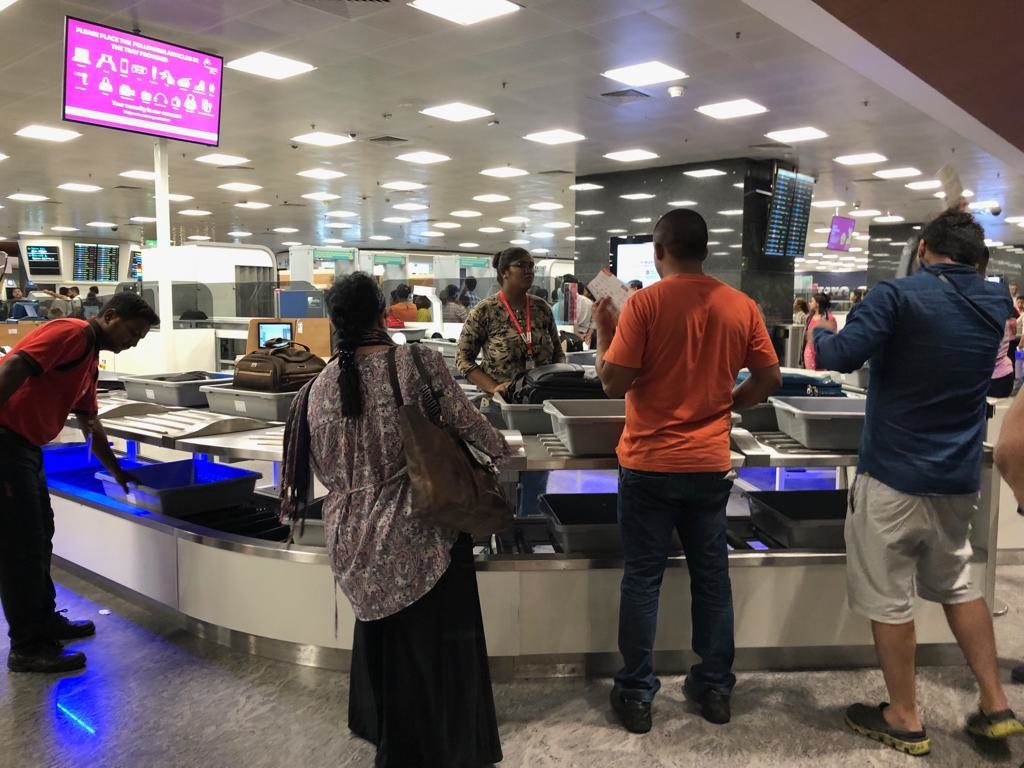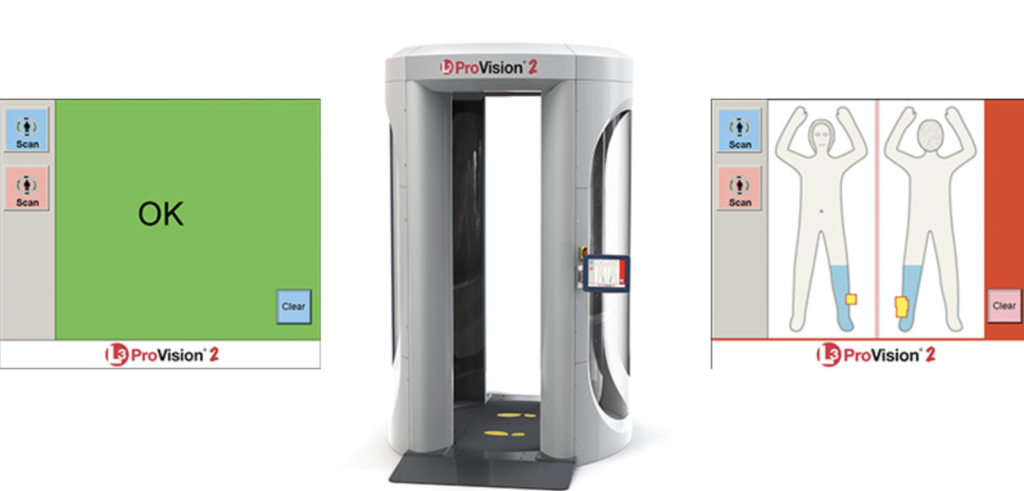In April 2019, the Bureau of Civil Aviation Security (BCAS), responsible for Indian aviation security, sent out a circular directing 84 airports across the country to have body scanners at Indian airports live by March 2020. Currently, walk-through metal detectors and hand-held metal detectors are used at all Indian airports.
A trial for body scanner was conducted at Delhi airport two years back, but it didn’t go well. Hyderabad airport will install at least two body scanners for trials by month end. Mumbai airport has already issued an initial tender to install body scanners.
Last year, Bengaluru airport came up with an action plan to reduce the time spent from entering the airport to the boarding gate. As a part of the master plan, Bengaluru airport installed automated baggage drop counters. They started testing biometric access and even introduced an expediated hand baggage only gate. Bangalore airport also introduced automated tray handling system. The next phase is installing body scanners to reduce time at the security check. And this is now being implemented.

Automated tray handling system at the Bangalore airport
Bengaluru airport has started a proof of concept study (POC) for Body Scanners. The trials have started since July 1, 2019, and are expected to continue for a month or so.
According to the BIAL spokesperson as reported by Hindustan Times,
Based on specifications issued by the BCAS, BIAL is using body scanners with Millimetre Wave (illumination) technology. This technology ensures that the scanners are safe for pregnant women and people with pacemakers. As per the Government of India guidelines, Bengaluru airport has been advised to go live with body scanners by April 2020.
BIAL is currently working towards ensuring that all Door Frame Metal Detectors (DFMDs) would be replaced with body scanners in the security hold areas and at least one set of DFMDs shall be retained for the screening of passengers/ persons with medical conditions/ reduced mobility. This decision, however, would be based on the outcome of the PoC.
So what is a body scanner?
In an image-free body scanner, the screen shows OK if the passenger doesn’t have a concealed item on him/her. If there is a hidden item on the person, then it’s exact location is shown on a generic mannequin displayed on the screen. Passengers are asked to step aside for frisking if the system does not clear them. Otherwise, they are good to go. No Personal Images are generated. The scan hardly takes a few seconds and should cut short the security check time by 50%.
Body scanners are useful in detecting concealed objects as well as help to reduce time spent at security check area by 50%.



I have passed through body scanners at various airports in US and Canada. It considerably reduces the lead time at security check-ins. I am sure passengers will love it in Bengaluru as well.
how about buckles in the belts?